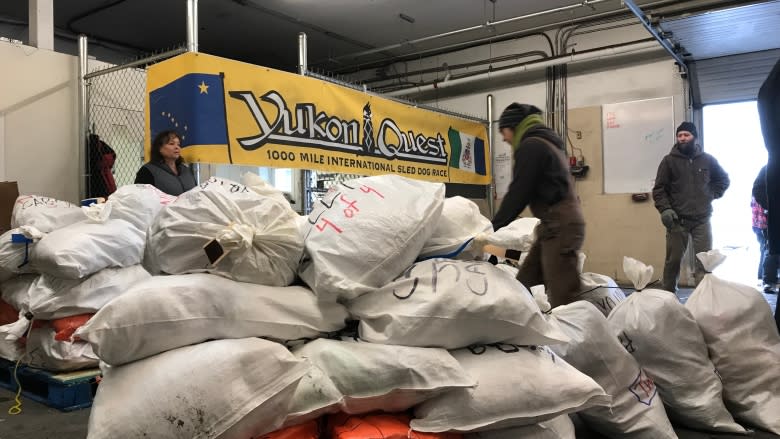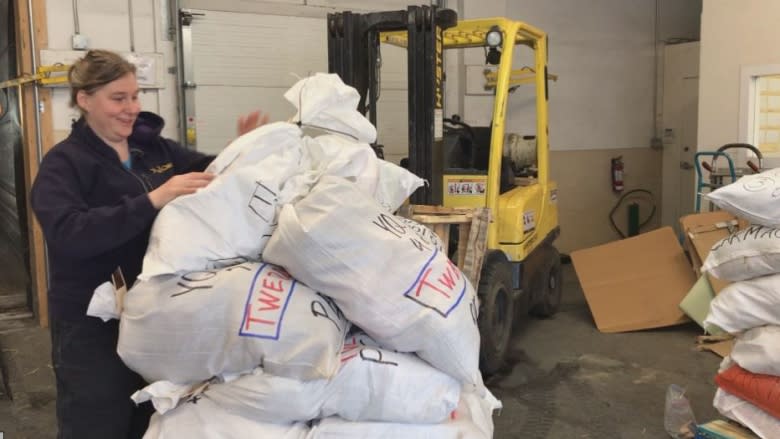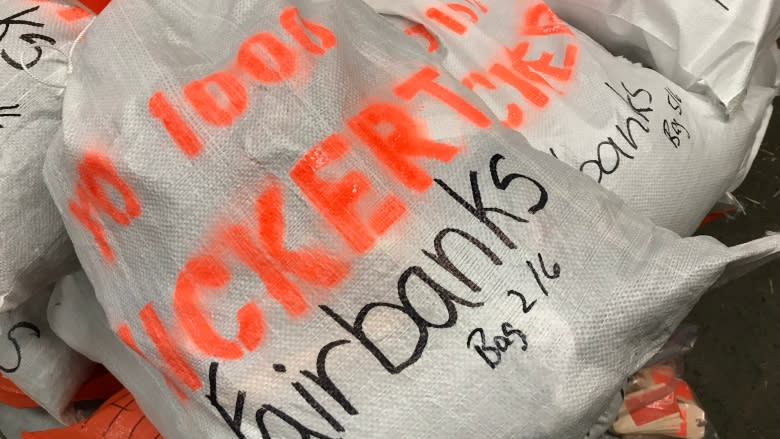What's in your bag? 'Drop day' precedes 2018 Yukon Quest
Somewhere amid hundreds of kilograms of supplies, Whitehorse musher Luc Tweddell has a few treats.
"I have some desserts my daughters made for me, little energy balls or something like that. I'll be happy to see them," he said.
Tweddell will find them when he needs them most: in the cold, alone, in darkness, and a few days out on the 1,600-kilometre Yukon Quest.
The race between Fairbanks, Alaska and Whitehorse begins Feb. 3.
On Jan. 20, mushers delivered supplies for drop day in Whitehorse. Another drop took place in Fairbanks.
Race crews in Alaska and Yukon will exchange goods and drop off bags at 11 different checkpoints along the trail.
Fish, beaver, pork, chicken and beef
Most of the weight is dog food — and it's more than kibble. Yukoner Ed Hopkins is preparing for his 10th Yukon Quest. He says he's learned to pack a variety of foods all rich in calories.
"It's thousands of pounds of dog food," he said.
"We've got fish and beaver and liver and pork fat and chicken fat and dry food and beef and a whole lot of other stuff."
As for himself, he packs spaghetti, sealed meals, granola bars and trail mix.
Some items, like two-way communication devices, are forbidden by race rules. In 2015 mushing champion Brent Sass was even disqualified for carrying an ipod.
Race officials write down what each bag contains, because the route requires participants to cross the border into Alaska.
Making a list and checking it twice
Doug Harris is race marshal for this year's race.
He says the mushers need to pack carefully. Any item missing from their checklist could prove a costly mistake along the trail.
"There'll be dog food, there'll be dog booties, there will be food for the mushers, spare runners, there may be some spare parts for the sleds like like brake teeth, things like that," he said.
"Spare flashlight batteries, anything they will need along the trail to be restocked so they can continue along the race."
Each bag can weigh no more than 18 kilograms and all are officially sealed to protect against tampering.
"It's a lot of work for the mushers to get prepared," says Harris.
"Once they're done — they're done. There's no adding to them."




